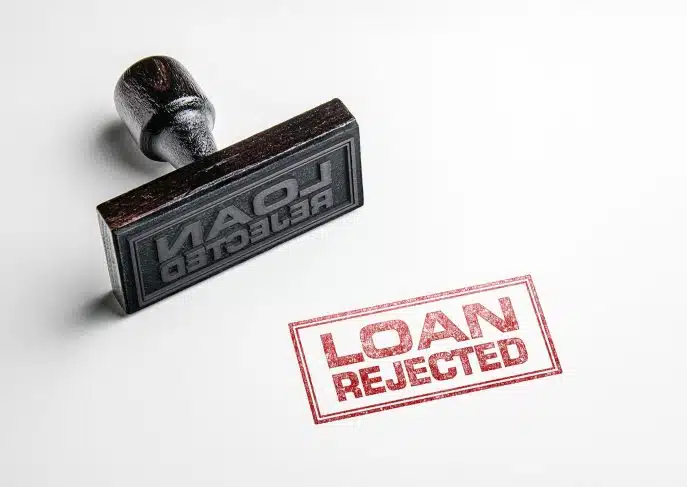Introduction
A short term business loan is a vital financial tool for small businesses and larger enterprises alike, providing the necessary cash flow to cover unexpected expenses, capitalize on new opportunities, or simply to manage working capital. With a variety of business loan options available, including both secured and unsecured loans, businesses can select the solution that best fits their financial situation and long-term goals. Whether you need to bridge a temporary gap in cash flow, invest in inventory, or support a new business initiative, understanding the ins and outs of term business loans is essential. In this guide, we’ll walk you through everything you need to know about short term business loans, from evaluating your business financials and crafting a strong business plan, to managing cash flow and choosing the right loan option for your needs.
Understanding Your Business Finances
Before applying for a short term business loan, it’s crucial to have a clear grasp of your business financials. This means regularly reviewing your financial statements, understanding your cash flow patterns, and keeping track of ongoing expenses. By assessing your current financial situation, you can determine how much you need to borrow, what repayment terms you can manage, and which loan options are most suitable for your business. Lenders will look closely at your business’s revenue, expenses, and assets to evaluate your ability to repay the loan, so having up-to-date and accurate financial statements is key. Taking the time to analyze your business financials not only helps you make informed decisions about loan purposes and repayment terms, but also highlights areas where your business can improve its financial health, making you a more attractive candidate to lenders.
Creating a Business Plan for Loan Success
A well-prepared business plan is one of the most important tools you can have when seeking a business loan. Your business plan should clearly outline your goals, target market, financial projections, and the experience of your management team. Lenders use this document to assess your business’s potential for growth and your ability to repay the loan amount, which can influence the interest rate and terms you’re offered. By presenting a comprehensive business plan, you demonstrate to lenders that you have a solid strategy for generating revenue and managing cash flow. Additionally, a business plan helps you identify potential risks and opportunities, allowing you to develop strategies to address challenges and make the most of new business prospects. Ultimately, a strong business plan not only increases your chances of loan approval, but also sets your business up for long-term success.
Managing Cash Flow: The Key to Short Term Loan Readiness
Effective cash flow management is essential when preparing to take on a short term loan. To ensure you can comfortably repay the loan amount plus interest within the agreed loan term, it’s important to closely monitor your business’s income and expenses. Maintaining a cash reserve can help you handle unexpected costs, while optimizing your accounts receivable and payable ensures that money flows smoothly in and out of your business. By keeping your cash flow healthy, you make your business more appealing to lenders and position yourself to take advantage of new business opportunities as they arise. Good cash flow management also gives you the confidence to invest in growth initiatives or navigate unforeseen expenses, knowing that your business has the financial stability to meet its obligations.
It’s not uncommon for small businesses to need cash fast. As a result, so many business leaders resort to getting short term loans. Discover if it’s right for your business.
Be it getting inventory or hiring employees, fast short term business loans can be a great solution for businesses in need of funds. These commercial financial products are tailored to meet the needs of clients, providing flexible funding options for various business purposes.
They allow you to keep your working capital to pay for operating expenses. And you get the funds to cover new receivables based on your business goals and strategy. For eligible applicants, same day approval and funding may be possible, and in many cases, funds can be received as soon as the next business day after approval. Once approved, you can access capital upfront to address immediate business needs.
Also, some companies use an unsecured short term loan for small business to cover shortages in working capital. For example, you can leverage outstanding invoices to access working capital quickly. And that can be particularly helpful for growing businesses.
Applying for these loans is convenient—you can apply online through lender websites or online platforms, making the process fast and accessible. The application process is straightforward, typically requiring basic business details and financial information. Be sure to prepare the necessary paperwork in advance to ensure a smooth experience. The approval process usually involves a quick assessment of your documentation and financials, with decisions often made within the same day.
Still, you need to approach short term loans with caution.
To help you choose the best option, the following sections explore the odds and ends of these loans.
Short Term Business Loans Explained
As indicated, these loans help businesses get enough working capital, usually for a term of around twelve months or less.
When secured or unsecured short term business loans get approved, your company receives a lump sum. Then, you’re accountable to repay the sum, plus interest as agreed with the lender. Some short term business loans use a factor rate instead of a traditional interest rate to determine the total repayment amount. A factor rate is a decimal figure, typically ranging from 1.1 to 1.5, that lenders multiply by the loan amount to calculate the total repayment. The factor rate can vary based on factors like your industry and sales, and it is commonly used for loans with terms under 12 months, impacting your overall repayment costs.
The term is very short, which could put a strain on your cash flow. However, you should view this type of loan differently.
For example, short term loans for startup business can be an excellent tool to cover immediate business needs and boost your revenue.
Also, the short term usually means the amount you take out is smaller.
Therefore, you don’t need to stress if you’re borrowing or paying too much. Instead, you can be sure you’re only getting the funds required to meet a specific business goal. Plus, the short term means the time for interest rates to accumulate is limited.
Speaking of which, the term is usually between six and twelve months. If it’s longer, your loan doesn’t belong to this category.
Typically, short term business loan lenders offer to small businesses include:
- Merchant cash advance (which is more like financing than a loan)
- The business line of credit
- Small Business loan
- Hire-purchase agreements, which allow for the purchase of business assets through regular payments, eventually leading to ownership of the asset
What Makes Your Business Eligible for a Short Term Loan
To qualify for a short term business loan, your business will need to meet certain eligibility requirements set by lenders. These typically include a minimum annual revenue, a proven track record of business operations, and a satisfactory credit check. Lenders may also consider factors such as your industry, growth potential, and the strength of your management team. Preparing the necessary documentation—such as financial statements, bank statements, and tax returns—will help demonstrate your business’s creditworthiness and improve your chances of securing favorable loan terms, including lower interest rates and flexible repayment options. By understanding and meeting these criteria, you can assess your business’s readiness for a short term loan and position yourself for a successful application.
Secured vs. Unsecured Short Term Loans
When considering a short term business loan, it’s important to understand the difference between secured business loans and unsecured loan options. Secured business loans require you to pledge physical assets, such as equipment or property, as collateral. This can often result in lower interest rates and access to larger loans, but it also means your assets are at risk if you’re unable to repay. Unsecured loans, on the other hand, do not require collateral, making them a faster and more flexible option for many businesses. However, they may come with higher interest rates and stricter repayment terms. When choosing between secured and unsecured loans, consider your loan purposes, the value of your assets, and your ability to manage ongoing fees and repayments. Whether you need a short term loan for working capital, a term business loan for expansion, or a line of credit for ongoing access to funds, understanding these differences will help you select the best loan type for your business’s unique needs.
What Makes Your Business Eligible for Short Term Loan
Lenders offer different loan amounts, interest rates, and repayment conditions. That’s why each short term loan is different from another, so the eligibility criteria may also vary.
The way lenders evaluate your applications largely depends on their requirements. Plus, lenders may have programs designed to address the needs of specific businesses. So, you’d need to shop around and assess the loan structure with each lender you find.
However, there are some universal criteria most lenders evaluate.
- Age of your company – your business needs to have been in the industry long enough so that lenders know you have the capacity to repay the loan. Usually, your business needs to be in operation for six months or more to get approved.
- Personal and business credit history – this is how lenders determine if you’re going to be late with payments or not. But with short term business loans, bad credit history might not be too much of a hindrance. Some lenders may even offer short term business loans without conducting credit checks, making the process less intrusive for applicants concerned about their credit scores.
- Revenue per annum – your revenue paints a clear picture of your business performance. Therefore, lenders may focus on it more. Usually, having $120,000 or more in revenue makes you eligible for a short term loan.
With that in mind, offering collateral as security may allow you to negotiate a better deal. Providing an asset, such as residential or commercial property, as security can result in lower interest rates and higher borrowing limits. Typical assets used as security for a short term business loan include real estate, vehicles, or equipment. But there are also unsecured options where you don’t need to lock your assets into a loan.
That being said, the majority of lenders ask for a personal guarantee. With the guarantee, it means you’re accountable to cover the cost if something happens to the business. And the lender will then be able to tap into your personal assets.
If you are applying for a larger loan or require more complex financial documentation, it is advisable to consult a broker who can guide you through the process and liaise with lenders on your behalf. Additionally, working with an accountant can help you prepare the necessary financial documentation and understand the tax implications of taking out a short term business loan. Before applying, discuss your loan options and financial situation with a professional to ensure you make the best decision for your business.
To Apply or Not to Apply
There’s no cookie-cutter framework to determine if a short term loan is a good option or not. However, there are some general guidelines to gauge if you need a long or short term financial product.
Start by examining your business needs. That includes your current cash flow, revenue, expenses, etc. And you need to be sure about the strategy on how to utilise the loan.
For instance, you might need a lot of cash to cover business growth. Due to that, the finances you take won’t result in short term revenue growth. So, it’s logical that a long term loan will work better for you.
However, if you need to pay the expenses that result in a fast revenue boost, then a short term business loan is the way to go.
Generally, it’s okay to use them to cover seasonal cash flow slumps. The same goes for seasonal opportunities, which could be accepting a new client or project.
But when an opportunity presents itself, you need to carefully analyse it to ensure you’re profitable despite taking out a loan. This principle also applies if you use a short term loan to cover advertising and marketing expenses.
Needless to say, you need to be certain that your marketing campaign will lead to a significant short term boost in your revenue. Otherwise, the loan could become a substantial financial burden.
Now, these are the things about the loan that you’ll only find out as soon as you contact a lender. It’s because, as mentioned, not all of them offer the same terms and conditions and your interest rates depend on various factors.
Assuming your company has been around for some time and it’s doing well, you shouldn’t expect the interest rate and payment frequency to be a barrier.
Secure Short Term Growth
When all is said and done, short term business loans are a great financial vehicle to give your business a quick boost.
But remember, this isn’t something you’d apply for to support your long term strategy. And when using short term loans to cover operating expenses, be careful not to jeopardise your cash flow.
Remember, both secured and unsecured short term business loans are available. And if you want to explore the second option, Unsecured Finance Australia is here to assist.
We offer unsecured business loans starting from $5,000 up to $300,000.
We ask for minimal documentation and offer 24-hour approval.
You can find out more about our unsecured business loans here




